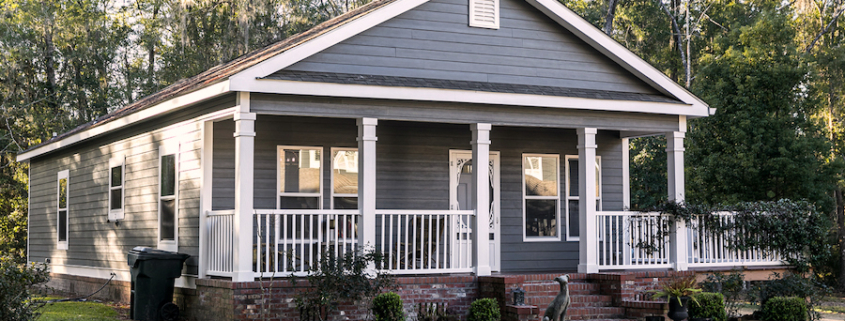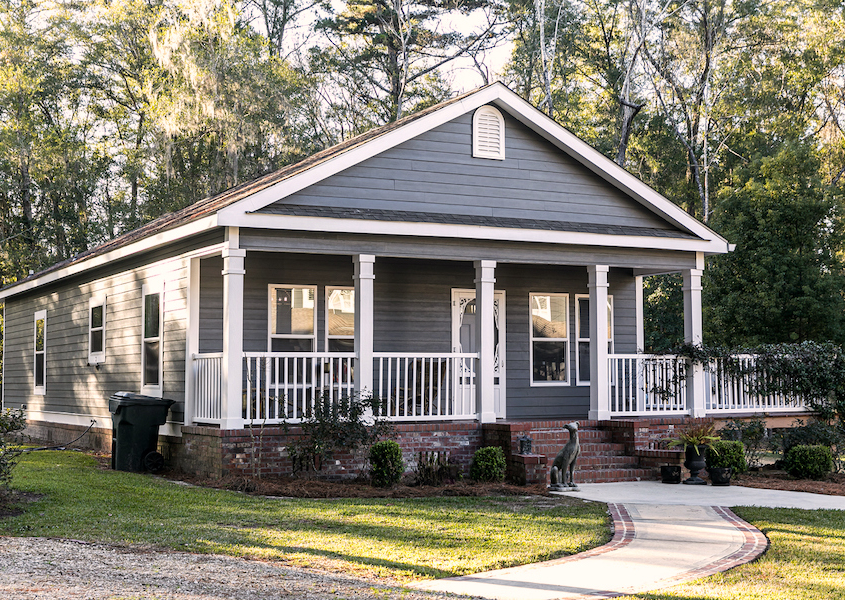Buying a New Home? Ask Yourself These 5 Questions First
Mortgage interest rates are starting to inch upwards, and it’s difficult to know when they’ll start rising for good. If you’ve been thinking about buying a new home, now is a good time to take action before the holidays are in full swing. Traditionally, inventory dwindles during the winter months, so it can be difficult to find the perfect home. And even when you do, the negotiations can grow competitive. In the meantime, prepare yourself for action and do a bit of homework by asking yourself these top 5 questions.
5 Questions Every New Homebuyer Should Be Prepared to Answer
1. How long do you plan on living in your new home?
Planning for the future can be difficult and we all know how quickly things can change. That said, it’s a good idea to have a general plan. Planning for your future will help you determine whether a fixed-rate mortgage is better than an adjustable-rate, and how much you decide to use for a down payment.
For instance, if you plan to stay for ten years or longer, it makes sense to apply for a fixed-rate mortgage and secure a low mortgage rate and a fixed monthly mortgage payment. Less than 10 years? An adjustable-rate mortgage typically has lower rates, but with today’s historically low rates, the decision isn’t an easy one to make.
If you’re planning to stay in the house for less than 3-4 years, it might be better to wait before buying a new home. Why? Closing costs and real estate commissions will cost you upfront, and three years most likely won’t make the cost worth it.
2. What’s your current credit score?
Did you know that your credit score is the most influential factor in determining your mortgage rate? So, if you’re deciding whether to sock away extra savings for a down payment or pay off your credit cards, it’s a smart move to pay down your credit cards.
To secure the lowest mortgage rate possible, you’ll need a credit score above 740. However, there are a number of great home loans available for homebuyers who have credit scores of 680-740 and other loans that require a minimum credit score of 580.
Download a free copy of your credit report to find out your credit score. It’s smart to review your credit report early in the process. Look for misinformation or errors, as most can be fixed within 30 days. Next, pay down your credit cards to improve your debt-to-income ratio.
3. How much do you want to use for a down payment?
The good news is that there are several home loans available, no matter the size of your down payment. You can be better prepared when you know the benefits and drawbacks.
For example, VA loans and USDA loans offer mortgages with zero down. FHA loans require 3.5% down, and a conventional 97 is a mortgage with a 3% down payment.
However, while these loan programs are created to help home buyers buy a new home, the mortgage carries higher fees. In addition, many government-backed home loans require mortgage insurance premiums for the life of the loan, which increases your monthly payment.
For the lowest mortgage rate and the most competitive home loan, plan on putting down 20%. You’ll avoid PMI (private mortgage insurance) and secure better terms on your overall mortgage.
Worth noting: here are a number of benefits available to first-time homebuyers, including down payment assistance, HUD-issued grants, and the ability to withdraw IRA funds without a tax penalty.
4. Are you prepared for the costs of home maintenance and property taxes?
Buying a new home is exciting and filled with optimism. Until the water heater breaks. Be prepared to have money saved and ready for home maintenance, improvements, and unexpected repairs.
In addition, property taxes and homeowner’s insurance will be required. Many mortgages have the option to fold your property taxes and HO insurance into your monthly payment. This option may help you budget and also make sure that everything is paid on time. However, you may want to manage those funds yourself and pay them when they are due instead of using your mortgage lender as a holding place.
5. Are you ready to shop around then wait?
To get the best home for your money, it’s smart to shop around. Go to open houses, be honest with your realtor about what you’re looking for. Spend time researching home prices and recent sales in the area you’d like to live in. The more homework you do, the better prepared you’ll be when you find the right home and you’re ready to make an offer.
Finally, ask yourself if you’re ready to wait. House hunting can be discouraging at times, especially if there aren’t a lot of homes on the market or the “perfect home” just sold to someone else. Almost every homeowner has gone through the adventure at some point, and it’s worth it to take your time when you’re buying a new home.
What’s Next
Once you’re thinking of buying a new home, the best first step is to get pre-approved. Getting pre-approved for a mortgage is easy, and you’ll be able to shop with confidence once you know exactly how much you can afford. As an experienced mortgage broker, we partner with different mortgage lenders across California, Oregon, Washington, and Colorado. We can secure competitive quotes from multiple lenders to make sure you get the best mortgage possible at the rate you deserve. Give us a call to get started.




